- ALL SERVICES
- • Salesforce Consulting Services
- • Managed Services
- • Simplification of Interfaces
- • Data Migration and Processing
- • Architectural Solutions and Scoping
- • Code Review, QA and Support
- • Applications Development
- • Pre-sales and Solutions Consulting
- • Technical Audit and Support
- • Custom Applications Development
- • AI Apps
BLOG
Salesforce AI in Healthcare: Tools and Applications Across Industries + Einstein Copilot Health Actions Review
• Date: September 2024 •
Estimated reading time: 13 minutes
Estimated reading time: 13 minutes
Subscribe for more useful content
We promise we'll not spam your mailbox!
By submitting you agree to receive a newsletter from Twistellar. You can unsubscribe anytime.
The healthcare industry generates 2.3 zettabytes of data globally. Much of it is scattered across various systems and remains underutilized. Unlocking this data could revolutionize access to treatment, enhance disease understanding, and drive medical innovation — not by changing how data is stored but by rethinking how it’s processed, accessed, and shared.
How will the companies using AI in healthcare deal with it? Here are a few findings and artificial intelligence (AI) in healthcare statistics from Salesforce Pulse of the Patient Snapshot survey:
- 69% of adults are uncomfortable using AI in their medical diagnoses.
- 69% of healthcare and life sciences workers believe AI is crucial for their organization's future
- Only 10% of U.S. adults feel they understand AI's role in patient health, indicating a need for more education
- 47% of respondents, when asked about the future of AI in healthcare, believe in a major impact on the system in the next five years, but only 29% think it will significantly affect their personal patient experience
- 24% of lower-income respondents believe AI will have a significant impact on their healthcare experience
People are unclear about the role of AI in healthcare but know it will have an effect. However, AI in healthcare must be used securely and ethically, enhancing rather than replacing human efforts.
Let's explore how AI harmonizes with modern health sciences and care, how Salesforce AI in healthcare specifically impacts care teams with their health and life sciences (HLS) offerings, and what’s in it for your organization.
Contents:
Benefits of Using AI in Healthcare
First, let’s outline why AI is a buzzword for many healthcare organizations. According to AI in the Health Care Industry: Driving Efficiency and Better Patient Experiences whitepaper by Harvard Business Review, key benefits of AI in healthcare include:
- Higher operational efficiency: Using AI in healthcare helps reduce administrative costs by automating routine tasks such as scheduling, billing, and claims processing. This can save the U.S. healthcare system up to $570 billion.
- Better patient experience: AI systems like chatbots can assist patients with appointment scheduling, medical queries, and health management, freeing medical staff to focus on more critical tasks. Healthcare providers can offer faster, more personalized services by automating these interactions.
- Lower healthcare costs: AI allows better use of data, helping providers reduce errors and increase diagnostic accuracy. These advancements reduce the costs associated with misdiagnosis and unnecessary treatments.
- Better decision-making: By unifying structured and unstructured healthcare data, AI can generate actionable insights that enhance decision-making across various levels of care.

Salesforce AI in Healthcare Benefits
How AI Can Be Used in Healthcare? Main Applications for AI in Healthcare
Here is how AI is already being applied in healthcare, according to an Applications of AI in Health & Life Sciences Study by Forrester and Salesforce:
- Medical imaging and diagnostics: AI algorithms can enhance the accuracy of medical imaging by detecting anomalies in X-rays, MRIs, and CT scans, assisting in early diagnosis and treatment planning.
- Chronic disease management: AI analyzes patient data to support better decision-making in managing chronic conditions such as diabetes and cardiovascular disease.
- Personalized care strategies: AI helps tailor treatments to individual patients by analyzing genetic information, lifestyle factors, and other data to recommend the most effective therapies.
- Virtual health assistants: AI-powered chatbots and virtual assistants help patients manage their health, offering real-time support and reducing healthcare staff workload.
- Drug discovery and development: AI uses in healthcare accelerate the drug discovery process by predicting the efficacy of drug compounds, identifying potential candidates faster, and optimizing clinical trial designs.
- Surgical robotics: AI enhances robotic tools, improving precision and reducing recovery times.
- Wearable devices: AI-integrated wearables track health metrics and provide real-time insights for patients and doctors, promoting preventative care.
- Mental health: AI tools help identify mental health issues early and offer resources for better management, though ethical and privacy challenges remain.
- Telemedicine and remote monitoring: AI supports telemedicine by monitoring patients remotely and alerting healthcare providers about critical health events.
- Clinical decision support: AI-driven tools provide clinicians with evidence-based recommendations during the decision-making process.
- Population health management: AI identifies trends and risk factors within large populations, helping public health officials and healthcare providers implement targeted measures.
- Predictive analytics: AI can analyze patient data to predict health outcomes, such as the likelihood of disease progression or hospital readmission.
Examples of AI in Healthcare with Salesforce
First, let’s sort out the main AI tools by Salesforce that permeate all Salesforce product lines:
Einstein AI is Salesforce's core artificial intelligence platform that powers various automated features across all Salesforce clouds. It provides predictive analytics, insights, and recommendations to help users make data-driven decisions. Einstein AI works more in the background, automatically running models and providing insights.
Einstein Copilot is a Salesforce AI assistant. It is designed to interact with users in real time with natural language, as if they're talking to a human, and help them navigate Salesforce more efficiently. Each user request or instruction is understood in the context of an ongoing conversation, so a user can ask follow-up questions or make related requests.
The copilot respects standard Salesforce access controls such as licenses and permissions, so it always acts securely. It’s integrated with the Einstein Trust Layer, a secure AI architecture natively built into the Salesforce.
Below are all Salesforce products for the HLS sector with natively integrated Salesforce conversational AI or AI-powered analytics.

Salesforce AI Offerings for HLS Organizations
Salesforce Health Cloud
Healthcare organizations struggle with managing intricate patient data, coordinating care among teams, and delivering tailored patient experiences.
Salesforce Health Cloud, the overarching platform built specifically for healthcare providers, tackles these issues by offering a comprehensive patient view, clinical data, and interactions, optimizing workflows, and providing powerful analytics and reporting tools. This platform enhances patient satisfaction costs, and helps achieve better outcomes.
Health Cloud is valuable for a wide range of healthcare-related organizations, including:
- Healthcare providers (such as hospitals, clinics, and ambulatory care centers)
- Payers (including insurance companies and government healthcare agencies)
- Medical device manufacturers
- Pharmaceutical companies
- Clinical research organizations
Designed to enhance patient care and collaboration between healthcare professionals, Health care offers the following features:
- Patient 360 View: Unified patient profiles that consolidate clinical data, care plans, social determinants, and communication history
- Care Coordination: this feature enables healthcare teams to collaborate and manage care plans, tasks, and patient communications in real time
- HIPAA Compliance: Built-in compliance with HIPAA (Health Insurance Portability and Accountability Act) regulations
There are a few Salesforce AI in Healthcare features compatible with Health Cloud:
Data Cloud for Health + Unified Health Scoring
The Unified Health Scoring feature is a tool with a user-friendly interface that provides a comprehensive and dynamic view of a patient’s health status, helping to recognize high-risk patients promptly. Using data from various sources, such as electronic health records (EHRs), wearable devices, and patient surveys, UHS generates a unified health score for each patient.
Unified Health Scoring displays scores, but it doesn't calculate them directly. By exporting patient health records to Data Cloud, you can use its Calculated Insights feature to process and generate scores.
Data Cloud for Health incorporates machine learning and AI to analyze patient data, identify trends and potential risks, and produce a comprehensive health score based on that analysis. The scores are then imported back into the Health Score object in Health Cloud.
Einstein Analytics for Healthcare
Einstein Analytics for Health Cloud leverages AI to provide predictive and prescriptive analytics integrated with patient and operational data within Health Cloud. It helps healthcare providers make data-informed decisions by predicting patient outcomes, identifying risks, and suggesting the next best actions.
Einstein Analytics offers customized healthcare dashboards in Health Cloud, such as patient risk stratification, care coordination, and population health management.
Intelligent Appointment Management
Intelligent Appointment Management enables healthcare providers to manage appointments and improve scheduling efficiency through AI automation based on patient preferences, provider availability, and care urgency. It also reduces missed appointments and patient no-shows with notifications and enables self-rescheduling using Einstein Predictions.
Assessment Generation for Healthcare
One of the more recent additions to Salesforce for the healthcare family, Assessment Generation with Einstein Generative AI, offers automated document analysis and detailed information extraction to generate assessment questions from PDF or DOCX files. This feature enables LHS organizations to digitize standardized assessments and automatically upload them into Health Cloud.
For example, an administrator can upload an OASIS-E survey, turn the questions into digital fields, and have patients fill them out electronically. This approach simplifies data entry, reduces errors, and cuts setup time from days to minutes.
Tableau Pulse for Health
Tableau Pulse for Health, built on Tableau’s advanced data visualization, uses generative AI to present insights in plain language, making it easier for healthcare professionals to interpret metrics.
For instance, clinicians and care managers can easily access and visualize key patient statistics, such as readmission rates, length of stay, and care plan adherence. Tableau Pulse ensures data security and reliability via the Einstein Trust Layer.
When integrated with Data Cloud for Health, Tableau Pulse enables healthcare professionals to explore their data and act on real-time insights. It delivers personalized, intelligent insights directly in everyday workflows like email and Slack.

Tableau Pulse with Salesforce AI in Healthcare, image source: Salesforce
Salesforce Releases Einstein Сopilot: Health Actions, Healthcare AI Assistant
Salesforce has unveiled Einstein Copilot for Health, a new AI-powered tool designed to enhance the Salesforce Health Cloud experience.

Einstein Copilot for Health, image source: Salesforce
Einstein Copilot is a conversational AI assistant that interacts in real time with healthcare professionals to streamline their use of Salesforce. It can generate interaction summaries for the care coordinator. The summaries can be sent to the patient and any new primary care provider and easily added to records in the system. The call summary includes all the interaction details and clearly articulates the next steps for the patient.
Einstein Copilot Health Actions addresses the need for more intuitive, hands-on support in healthcare settings. It is available in Lightning Experience for Enterprise and Unlimited editions with Health Cloud and Einstein GPT add-ons.
Some of the features include:
- Conversational interface: Utilizing natural language processing to allow users to interact with Health Cloud through voice or text commands.
- Contextual guidance: Offers real-time, context-aware guidance to help users navigate the platform and access information quickly.
- Actionable insights: Delivers insights and recommendations based on the user’s current task and patient data, enhancing decision-making and operational efficiency.
- Workflow integration: Seamlessly integrates with existing workflows, providing support across various tasks and improving user productivity.
Data Cloud for Health and Tableau Pulse are currently generally available. Assessment Generation launched in the summer of 2024. By the same time, Einstein Copilot is anticipated to meet HIPAA compliance standards, with Copilot: Health Actions expected to be released in winter 2024.
However, integrating Einstein Copilot with existing systems and workflows may present challenges, requiring adjustments and training. Ensuring the security and privacy of sensitive patient data remains critical.
Conclusion
- Amit KhannaSVP & GM, Health & Life Sciences"AI won’t replace doctors; it will augment them. People highly value and trust the personal relationship with their doctors, and AI should be seen as a tool to enhance and support that relationship rather than a substitute. By automating administrative burdens and streamlining workflows, AI can empower doctors to deliver even better care and personalize patient experiences."
HLS leaders recognize using AI in healthcare as crucial for business growth and differentiation. While there's enthusiasm for leveraging AI across various organizational levels, many HLS organizations face challenges, particularly data readiness. Forming selective, long-term partnerships with versatile vendors is essential to meet their goals. Choosing the right partner for implementing and configuring Salesforce AI in Healthcare can simplify the implementation process.
FAQ: Salesforce AI in Healthcare
Salesforce is used in healthcare to streamline operations, enhance patient care, and improve outcomes through its Health Cloud. It helps healthcare providers, payers, and life sciences organizations centralize patient data, manage relationships, and coordinate care effectively. Key applications include:
- Patient management involves centralizing patient information to create a holistic view of each patient's history, needs, and interactions.
- Care coordination: Facilitating communication and collaboration among care teams to deliver integrated and personalized care.
- Patient engagement: Improving patient interaction through personalized outreach, appointment scheduling, and adherence tracking.
- Operational efficiency: Automating workflows and processes to reduce administrative burden and enhance efficiency.
- Analytics and reporting: Utilizing data insights to drive decision-making, track performance, and optimize care strategies.
- Salesforce AI in Healthcare: Salesforce AI in Healthcare enables healthcare organizations to predict patient needs, enhance diagnostic accuracy, and personalize treatment plans based on data-driven insights.
When it comes to where AI is used in healthcare, predictive analytics is used to improve decision-making and patient outcomes. Key uses include:
- Predictive analytics: Analyzing patient data to predict health risks, identify potential issues early, and personalize treatment plans.
- Natural language processing: Extracting insights from unstructured data such as medical records and clinical notes to support clinical decisions.
- Medical imaging: Enhancing diagnostic accuracy by analyzing medical images to detect conditions like tumors or fractures.
- Virtual health assistants: Providing patients with personalized support and health information through AI-driven tools.
- Operational efficiency: Automating administrative tasks such as scheduling, billing, and patient triage to reduce costs and improve service delivery.
AI chatbots are used in healthcare to improve patient engagement, streamline communication, and enhance overall care efficiency. They offer several benefits, including:
- 24/7 support: Providing patients with round-the-clock assistance for scheduling and answering questions.
- Symptom checking: Assisting patients in identifying potential health issues based on their symptoms and directing them to appropriate care.
- Appointment scheduling: Automating booking and managing appointments, reducing administrative workload.
- Medication reminders: Sending reminders to patients about medication schedules and adherence to treatment plans.
- Patient education: Offering educational content and health tips tailored to individual needs and conditions.
Twistellar's team has carried out a number of industry-focused Salesforce implementations, and we are always open
to discuss your project!
to discuss your project!
Our deep understanding of Salesforce platform ensures successful handling of projects in any domain
By submitting you agree to receive a newsletter from Twistellar. You can unsubscribe anytime.
Our Best Articles and Salesforce Overviews
Feeling like teaming up with us at Twistellar? We are excited too! Whether you'd like to customize your org, build a bespoke application or integrate a third-party tool, Twistellar is ready to help you.
Get in touch to discuss your Salesforce ideas!




